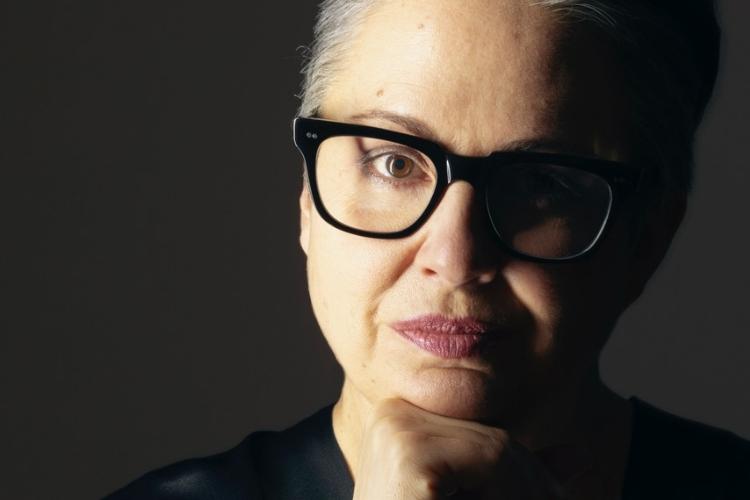Victoria Kelly’s Requiem was to be a highlight of the Auckland Arts Festival. Covid had other ideas. After the concert was cancelled, the composer spoke with SOUNZ about perfect notes, poetry, and making Simon O’Neill sing in falsetto.
“Sometimes,” says composer Victoria Kelly, “the whole universe can exist in a note. But it takes someone a lifetime to get to the point where they can produce a note like that.”
Kelly’s universal note came in the middle of a piece of Bach, and it was produced by tenor Simon O’Neill, who was performing with NZTrio.
“There was one falsetto note that Simon soared up to and then went back to his normal register. I couldn’t forget that note; it was so beautiful. Later I said to Simon, ‘If someone wrote for you in that range, would you consider singing something entirely in falsetto?’”
The result is Kelly’s Requiem for tenor, soprano, choir and orchestra. The work was to debut at Auckland Arts Festival, and would mark the composer’s return after seven years away from full-time music writing, during which she had been a senior figure at performing rights organisation APRA. Covid had other ideas and the piece remains, for now, unperformed.
Kelly proclaims herself “gutted” about the cancellation, but there’s a sense of relief that the Requiem is now outside of her. It has, she says, been bubbling away internally for decades.
“I started thinking about writing a piece like this when my father died, when I was 20,” Kelly, now 49, says. The work is in part dedicated to her father, as well as her mother, who died when Kelly was 30, and others. “[But] there’s no way I could have written this when I was 20 or 30 or 40. If you’re contemplating your mortality, you need to be in a place where that means something more than just pure speculation. You need to have felt things on the scale of what you’re trying to express.”
It’s fair to speculate that Simon O’Neill feels it unnecessary to express these things in falsetto. Why ask that of the world’s leading heroic tenor, rather than of someone who already sings in the chosen range?
“That’s what he said!” Kelly laughs. “‘Are you sure you don’t want a countertenor, Victoria?’ Simon is a heldentenor, so in some ways he’s the ultimate expression of musical masculinity. I wanted him to represent fragility, so asking someone to sing in a place where they’re fragile I think achieves that. It’s not like he’s struggling to sing it, it’s just that his voice in this range has got so much texture. He hasn’t trained all the edges out of it, so it’s got rawness and colour and it’s so beautiful.”
The vocalists sing Kelly’s melodies to five poems by some of our most beloved writers, and while this secular Requiem doesn’t follow the traditional structure, in Kelly’s mind the texts conform loosely to sections of the mass for the dead.
“Each poem has an element that to me links to a spiritual context. Bill Manhire’s poem [‘The Prayer’] has a line, ‘I stayed a minute/& the garden/was full of voices’. That to me reflects the Requiem aeternam, eternal rest. Chloe Honum’s ‘Bright Death’ is a Lacrimosa. James K Baxter’s ‘High Country Weather’ is a Gloria.”
All five poems Kelly has selected were written in English by Pākehā. She thought long and hard about that.
“I thought about whether I should seek out poetry in Māori to include but it felt like appropriation to do that, because it’s not my language.”
Instead, Kelly is recording some of the music from the Requiem bilingually, through an initiative created by Dame Hinewehi Mohi. The translation was made by Sir Tīmoti Kāretu, and will be sung by Anika Moa who, with Stacey Morrison, sat down with Kelly to nut out how the new words would fit the music.
When Lorde did something similar with the EP ‘Te Ao Mārama’, sung in te reo Māori, she received praise and opprobrium in equal measure. Is Kelly prepared for the potential backlash?
“I would hate to cause hurt but yes, I am, and that’s surely as it should be. I think it’s presumptuous to imagine that all Māori people will feel the same way about anything to do with te ao Māori, especially when a Pākehā is involved. Of course there will be more than one opinion. I hope that when people hear both versions they will hear the intent.” Kelly sighs. “It’s an offering, you know? I have been invited into so much music by Māori people; what have I done to invite them into my musical world, to offer to them in the same way they’ve offered to me? This is a way I can reciprocate.”
In the absence of performances, the entire work is being recorded, with O’Neill, soprano Jayne Tankersley, Auckland Philharmonia Orchestra and a hand-picked choir. Anika Moa’s te reo Māori piece, meanwhile, is being released as a single, an act Kelly describes as crossing her fingers and throwing it into the void.
For someone who’s exerted so much control over her Requiem, that can’t be easy.
“There comes a point where you have to say you don’t have control any more. And releasing music today is like throwing things into the void. It’s not like my meditation on death is going to hit the Billboard Hot 100. Be funny if it did.” Kelly bursts into laughter. “Watch out, BTS!”
